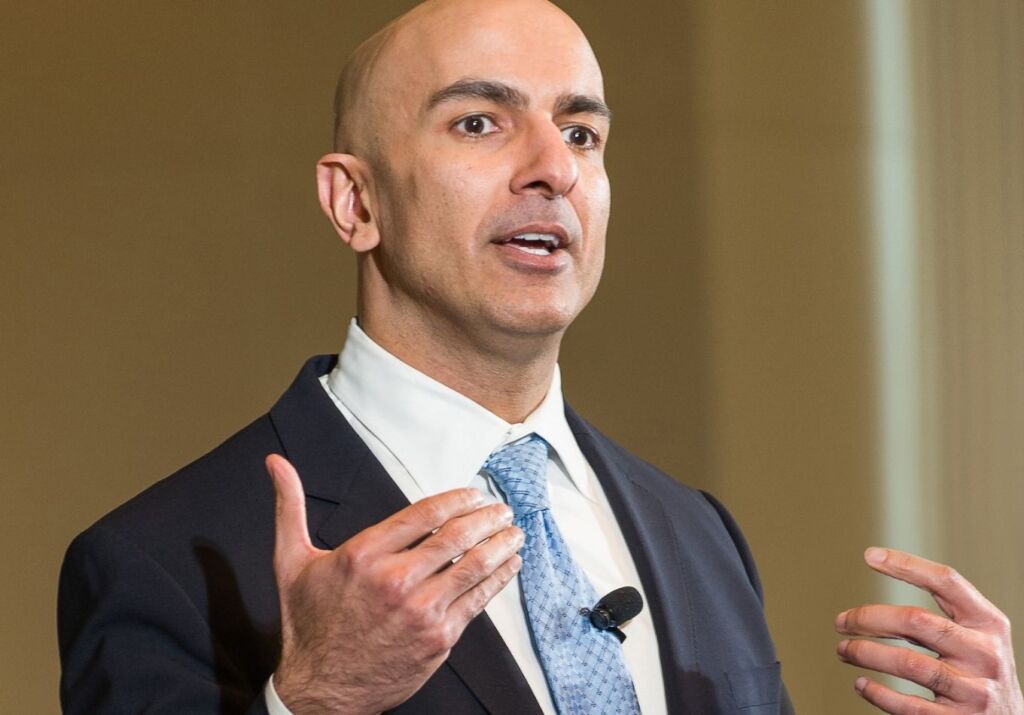Campaign by Neel Kashkari and the Mpls Fed violates federal law
Letter to Federal Reserve Board Chairman Jerome Powell outlines illegal grass roots lobbying

Center of the American Experiment sent a letter to the head of the Federal Reserve Board in Washington, D.C. and the directors of the Federal Reserve Bank of Minneapolis demanding they take immediate action to shut down the bank’s unlawful and unwise grass roots lobbying campaign to enact the so-called Page Amendment to the Minnesota state constitution.
The Page Amendment is an effort spearheaded by the Minneapolis Fed to amend the Minnesota state constitution to guarantee a “quality” education for all Minnesota children, aimed at closing the education achievement gap. In October 2019 Minneapolis Federal Reserve Bank President Neel Kashkari published an opinion-editorial in the StarTribune on the achievement gap with Page Amendment namesake and former Minnesota Supreme Court Justice Alan Page, and has since committed the bank’s federal resources and clout to its passage.
Mr. Kashkari and the Minneapolis Fed are using the bank’s resources to fund classic grass roots lobbying activities. The bank’s official website includes a web page devoted to the amendment, which is regularly updated and prominently advertised on the home page. The bank is also holding a series of “community conversations” across the state where they ask people to call their legislator and ask them to support the amendment.
The letter sent by American Experiment Senior Policy Fellow Peter Nelson to Board Chairman Jerome Powell and the directors of the Minneapolis Fed outlines how the activity of Kashkari and the Minneapolis branch violates federal law, conflicts with the Minneapolis Fed’s code of conduct, and undermines the credibility and independence of the entire Federal Reserve System. From the letter:
The Minneapolis Fed’s lobbying campaign clearly violates the Federal Reserve Board’s long-standing policy against bank directors’ and officers’ involvement in controversial political activities….
Most concerning, they are using the bank’s funding to pay for these political activities. Bank revenues that should be directed to other operating expenses or returned to the Treasury are being spent on research, messaging and communications, web site maintenance, and events. The fact that the Federal Reserve Act requires banks to return excess revenues to the Treasury suggest Minneapolis Fed employees may be violating federal law….
Congress enacted the Anti-Lobbying Act in 1919 to prohibit federal employees from using federal appropriations to lobby Congress. Most pertinent to Mr. Kashkari and his staff, the prohibition now extends to lobbying with the purpose of influencing any government policy at every level of government, not just members of Congress. Therefore, federal law now prohibits lobbying to influence state legislators and citizen votes on a ballot measure.
“Taking the research function of the Minneapolis Fed and turning it into grass roots advocacy is a clear violation of their own policies and runs afoul of Federal law,” said Peter Nelson, Senior Policy Fellow at Center of the American Experiment. “Minnesotans should have the expectation that federal dollars won’t be used to lobby for or against changes to state law, especially controversial changes like the Page amendment.”
American Experiment is not the first to call out Kashkari and the Minneapolis Fed for their political activities. Last year U.S. Senator Pat Toomey, the Ranking Member on the Senate Banking Committee, wrote to President Kashkari requesting briefings and documents on what he described as “woke mission creep” occurring at the Minneapolis Federal Reserve Bank. Sen. Toomey specifically cautioned Kashkari “on the reputational damage being inflicted on the Minneapolis Fed and the Federal Reserve as a whole by pursuing a highly politicized social agenda unrelated to monetary policy.”
To add insult to injury, Kashkari lashed out at one of the Page Amendment’s critics when challenged on the propriety of his grass roots lobbying effort. Writing on Minneapolis Fed letterhead, Kashkari resorted to telling highly regarded law professor Myron Orfield, a critic of the amendment, that his views “appear to be grounded in racism.”